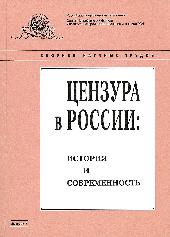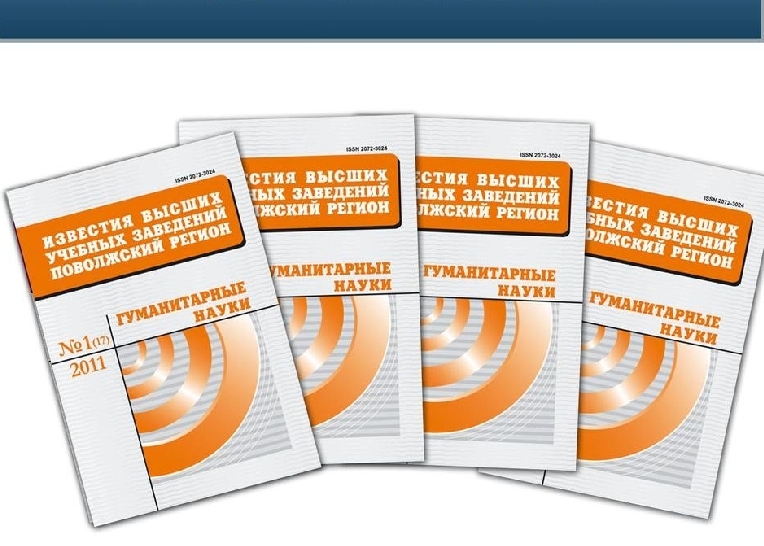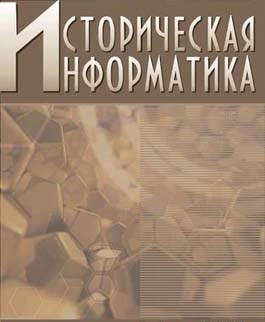Research papersnumber of papers: 35

Censorship practices towards Siberian provincial gazette
Drawing on the legislation on publishing the provincial gazette, newspapers and archival materials the paper explores the censorship regime and censorship practices in terms of publishing the provincial gazette in Siberia.
The First World War and Russian university teaching community: everyday life of wartime
The phenomenon of man and corporative communities in the context of war is of interest to historians and anthropologists because addressing it one can see how our ancestors and public institutions acted under extraordinary and borderline circumstances.

Creating regional alliances of Siberian cities: the construction of regional identity during wartime, 1914 – 1916
The approach presented in the article to the role and place of regional divisions of the All-Russian Alliance of Cities in the public life of Siberia is based on the analysis of social practices dealing with the creation thereof, in the context of constructing regional identity. The article reveals the specifics of forms and ways of presenting Siberian identity used by the liberal-minded active minority during the World War I. The reasons that did not allow realize the project for the creation of a broader public coalition based on self-government institutions are also provided herein.

Sibirtet as an organizational form of the actualization of regional identity during World War I
The article presents a comprehensive assessment of subjective and objective factors in the formation of the ‘Siberian society of support for the sick and wounded and victims of war’ as a specific form of social activity during wartime. The novelty of the author’s approach consists in the use of the interdisciplinary concept of ‘regional identity’ as a primary category of analysis for achieving the author’s research goal.

The creation of an electronic index for the Tomsk Provincial Gazette’s ‘unofficial content’
The article presents the results of the work done to create an electronic index for the ‘unofficial content’ of the Tomsk Provincial Gazette released from 1857 to 1917, which helps solve research and educational tasks through the full-text e-portal ‘Tomsk Provincial Gazette’. The information and bibliographic model of systemizing materials provided therein can be used for the creation of indices for suchlike publications.

Euric, the Leader of the Visigoths – Friend or Subject: The Treaty of 475 in Sources and Studies
This article presents an analysis of the agreement between Nepos, the Roman emperor, and Euric, leader of Aquitaine Visigoths, concluded in 475. Many scholars consider this agreement as a turning point in the process of decline of the Western Roman Empire, leading to its fall in 476. As a result of anthropological critical analysis of the source and comparing existing approaches to the study of this problem, the local character of the subject of negotiations linked to a particular incident was established. Specifics of the source lead to overestimating the significance of the agreement of 475. The article examines the significance of the fact that the Emperor addressed the leader of the Visigoths as a “friend”, and proves the fallacy of interpretation of such address as a formal term meaning legal equality of the parties.

V.N. Tatischev: The Prototype of the First Russian Historian
Historians of various academic schools and research areas frequently ask the same question whether Tatischev was the first professional historian or the last chronicler, hardworking amateur, or maybe even an insidious hoaxer. The article discusses existing in Russian historiography assessments of V.N. Tatischev as 18th-century historian and researcher and author of “History of Russia”.

“Yenisei Province News” - Forgotten Newspaper of Eastern Siberia
Unlike Tomsk, Tobolsk and Irkutsk Provincial Gazette, “Yenisei Province News” seems to be ignored by scholars. Use of archival materials and informal section of the newspaper for the entire period of its circulation can help fill this gap. The article describes the informal thematic content of the first Krasnoyarsk newspaper, highlights some specific features of its content, suggests time frame of its development.

Emperor Nicholas II and Tomsk State University
The article describes the visit of the heir to the throne Nicholas Alexandrovich to Tomsk and Imperial Tomsk University from July 5th through 6th, 1891, on return way from his trip to the east. On the basis of available academic literature, documents, including those being used for the first time, and the periodical press, the article reconstructs the history of the heir to the throne visit to Russia’s first institution of higher education in the Asian part of Russia. The article is targeted for those interested in the history of the Romanovs, as well as Russian higher education and science history.

Work Day at Siberian Mountain Mines in the late 19th - early 20th century
The article presents an analysis of dynamics and structure of the working day at Siberian mines in the late 19th - early 20th century. The tendency of reducing working hours in all industries while maintaining large dispersion of parameters linked to profession and forms of remuneration. Paid-by-the-hour workers had shifts longer than miners on a piecework payment. Commute, assignment process, overtime work made up a significant part of their working hours. According to the author, workday duration of Siberian miners was the same as a workday in European part of Russia.





 The project "Man in a Changing World. Identity and Social Adaptation: Past and Present" is funded by the Russian Government
The project "Man in a Changing World. Identity and Social Adaptation: Past and Present" is funded by the Russian Government 